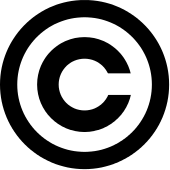Although the internet can be deemed in a multitude of reasons to be a great thing for society, it is also, at 
After consulting with a IP (Intellectual Property) lawyer in the last week, what I discovered was quite dauting, that the laws on copyright seem to be, on the surface of things, ‘swept under the carpet’ online for bloggers. However, the truth is that it is always better to be safe than sorry. For this reason, here are the main areas of copyright you should be concerned with and understand if you are a blogger or website owner online, from consulting an IP lawyer.
#1 Copyright Laws are Different Country to Country
Although you might think copyright is universal, it actually isn’t. The law on copyright in India as opposed to America as opposed to the UK are different to some aspects and the same in others.
With regards to which one you should pay attention to, it is the copyright of where your location is. The best way to think about it is that the copyright law is based on where the ‘crime’ (being to reproduce copyrighted content) took place.
#2 All Content Online is Copyrighted
At first, you may think only the content that is on a web page that displays the © symbol at the bottom of articles is copyrighted – wrong. Anything that is published online automatically recieves copyright. For this reason, if you choose to take any content from anyone else, make sure you to get their permission first.
Fair Use is very Grey
The term ‘fair use’ is not a loop hole in copyright, but an area where you are allowed to copy content without the permission of the author, if it is based for certain reasons. Such reasons include:
- Educational purpose, for non-profit reasons
- To critique/analyse
- Parody and satire
These are some of the main reasons fair use are used and are used mainly by the news industry (since news should not be copyrighted).
#3 Unless Stated, Freelancers Own All of their Work
This one surprised me at first. However, the law on intellectual property states that whoever creates the work is the owner of that work – this makes sense. However, what you will find is that many freelancers create content for websites. When this happens, a lot of people automatically think the owner of the website is now the legal owner of the content? Wrong!
For this reason, if you are a website owner, blogger or a freelancer, make sure, before you hire someone or become hired, it is understood between both the parties who owns the content that is being produced by the freelancer. This is crucial because if the website owner reproduced the content of a freelancer in something, say a book that is related to the website, the freelancer could argue very strongly that a percentage of the profit of the book should be given to him/her, considering the fact that it is their copyrighted content, they own, for which the website owner is profiting from copying.




